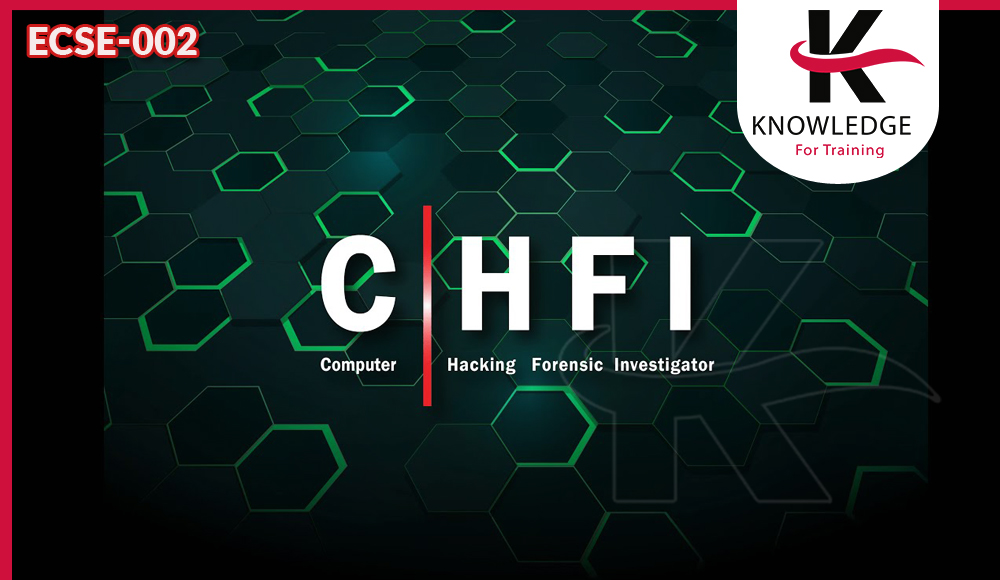-
Course Code
ECSE-002

Computer Hacking Forensics Investigator
- The CHFI v8 Program certifies individuals in the specific security discipline of computer forensics from a vendor-neutral perspective. The CHFI certification will fortify the application knowledge of law enforcement personnel, system administrators, security officers, defense and military personnel, legal professionals, bankers, security professionals, and anyone who is concerned about the integrity of the network infrastructure.
- Computer forensics is the application of computer investigation and analysis techniques in the interests of determining potential legal evidence. Evidence might be sought in a wide range of computer crimes or misuse, including but not limited to; theft of trade secrets, theft of or destruction of intellectual property, and fraud. Computer forensic investigators can draw from an array of methods for discovering data that resides in a computer system.
Learning Outcomes
- The process of investigating cyber-crimes and the laws involved, as well as details in obtaining a search warrant
- Different types of digital evidence, rules of evidence, digital evidence examination processes, and electronic crime and digital evidence consideration by crime category
- How to recover deleted files and deleted partitions in Windows, Mac OS X, and Linux
- The process involved in forensic investigation using Access Data FTK and Encase Steganography and its techniques, as well as stainless, and image file forensics
- Password cracking concepts, tools, types of password attacks and how to investigate password protected file breaches
- Different types of logs capturing techniques, log management, time synchronization and log capturing tools
Course Contents
- Module 1: Computer Forensics in Today's World
- Module 2: Computer Forensics Investigation Process
- Module 3: Searching and Seizing Computers
- Module 4: Digital Evidence
- Module 5: First Responder Procedures
- Module 6: Computer Forensics Lab
- Module 7: Understanding Hard Disks and File Systems
- Module 8: Windows Forensics
- Module 9: Data Acquisition and Duplication
- Module 10: Recovering Deleted Files and Deleted Partitions
- Module 11: Forensics Investigation using Access Data FTK
- Module 12: Forensics Investigation Using EnCase
- Module 13: Steganography and Image File Forensics
- Module 14: Application Password Crackers
- Module 15: Log Capturing and Event Correlation
- Module 16: Network Forensics, Investigating Logs and Investigating Network Traffic
- Module 17: Investigating Wireless Attacks
- Module 18: Investigating Web Attacks
- Module 19: Tracking Emails and Investigating Email Crimes
- Module 20: Mobile Forensics
- Module 21: Investigative Reports
- Module 22: Becoming an Expert Witness
Our Methodology
- Make coaching and monitoring innovative and using modern
- Media training also using on the go training by using interactive means and focusing on
- The exercises, practical applications and real situations study
- Live delivery method, instructor-led training
- Experienced consultant, trainers, and professional
- Qualified trainer with high-level experience
Attendance Reports
- Send daily attendance reports to training departments
- Send full attendance report to training dep. by the end of the course
- Attend 100 % from the course days also provide daily
- Issue attendance certificate for participant who attend minimum 80% from the course duration
Pre/Post Reports
- Pre- assessment before starting training
- Post assessment after finish training
- Full report for the deferent between Pre-& Post assessment
Who Should Attend
- Defense and Military personnel
- e-Business Security professionals
- Systems administrators
- Legal professionals
- Banking, Insurance and other professionals
- Government agencies
- IT managers
